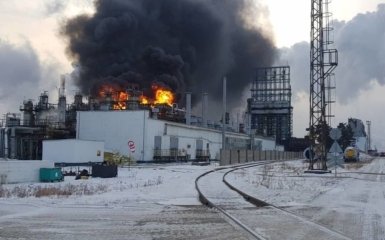PACE adopted a resolution stating that under international humanitarian law, Russian oil refineries can be considered legitimate targets of military attacks.
What do PACE and NATO think about strikes on Russian refineries?
Michael Gonchar, a Ukrainian expert on international energy and security relations and president of the Center for Global Studies "Strategy XXI" noted that the PACE adopted Resolution 2540 (2024) on "The death of Oleksiy Navalny and the need to oppose Vladimir Putin's totalitarian regime and his war on democracy."
It contains several essential things for Ukraine.
I will dwell on only one, which continues to be relevant in the context of accusations from several American officials regarding the undesirability of Ukrainian attacks against Russian oil refineries. Thus, PACE believes that, according to international humanitarian law, Russian oil refineries can be considered legitimate targets of military attacks.

Michael Gonchar
President of the Center for Global Studies "Strategy XXI"
The analyst draws attention to the fact that this coincides with the vision, which, in other words, was voiced by NATO Secretary General Jens Stoltenberg on April 10.
Then he said that Ukraine, in self-defense, has the right to attack military targets of the Russian Federation located outside its territory.
This is part of the legal right to self-defense — strikes against legitimate military targets outside the country, Stoltenberg said at a joint press conference with Finnish President Alexander Stubb.
So, as Gonchar points out, the PACE and the NATO Secretary General diplomatically explained to the Washington officials what and why.
For my part, I would like to point out that the refinery does not just produce gasoline, diesel, or kerosene, as it seems to some people on the banks of the Potomac when the US Deputy Secretary of Defence claims that the refinery is a civilian facility. The refinery produces several dozen to several hundred different products, including those for specific purposes.

Michael Gonchar
President of the Center for Global Studies "Strategy XXI"
How Russian refineries work for the Russian army
Gonchar gives an example of these refineries' production of T-8B fuel for supersonic aircraft, particularly the Tu-22M3.
And this fuel is produced precisely at some refineries using a special technology so that it maintains its stability when, during a supersonic flight, the fuel in the tanks is heated to a temperature of more than 100ºС. In the same way, cruise missiles of the X-101 or Kalibr type are refueled with different brands of aviation kerosene.
The refinery's products also include a variety of special lubricants—turbine, motor, transmission, power, and hydraulic fluids—without which it is impossible to imagine the operation of aircraft engines, hydraulic systems of aircraft and ships, tank transmissions, helicopter propeller gearboxes, and turboprop aircraft of the same Tu-95MS bomber type.
The analyst emphasises that a number of refinery products are produced only and exclusively for the needs of the Russian army, they are not used in the civilian sector. Refineries are therefore legitimate military targets.




